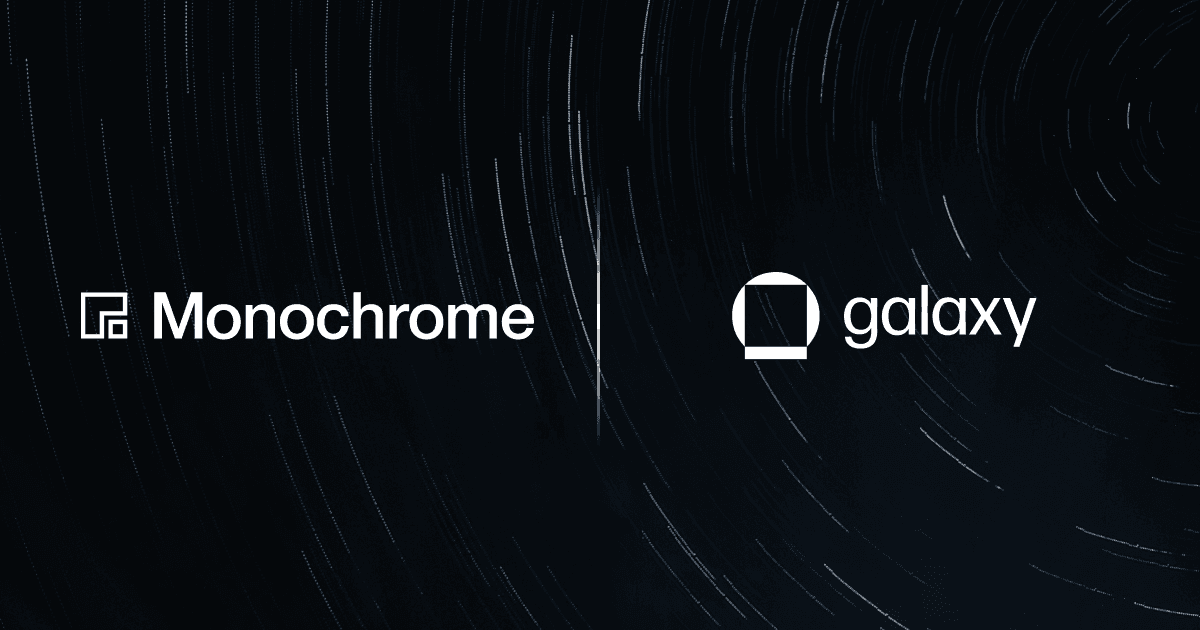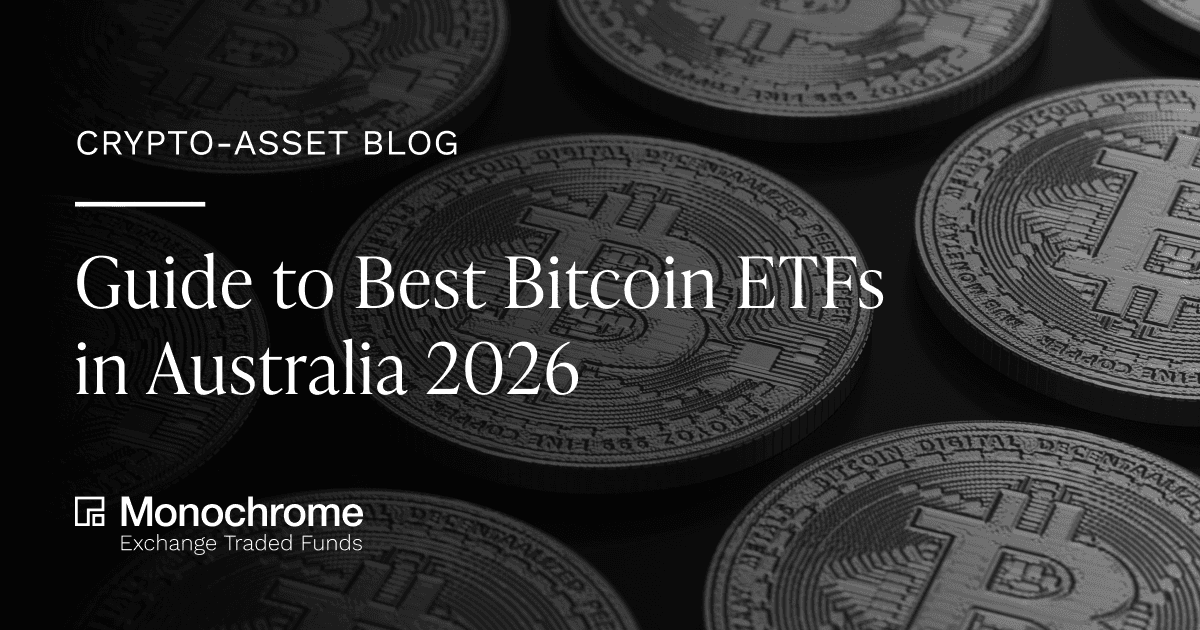Share
Europe Launches Spot Bitcoin ETF
The first spot bitcoin ETF in Europe was launched on the Euronext Amsterdam stock exchange by London-based digital asset management firm, Jacobi Asset Management. After delaying the launch by a year, the firm announced the launch of its spot bitcoin ETF product, Jacobi FT Wilshire Bitcoin ETF (BCOIN), which was approved by the Guernsey Financial Services Commission in 2021. Jacobi has reported that its service providers for custodial services and market making include Fidelity Digital Assets and Flow Traders respectively.
Europe’s first ever spot bitcoin ETF will allow European investors to gain exposure to physical bitcoin through a regulated and structured product. BCOIN will track against the FT Wilshire Bitcoin Blended Price Index, which provides real time bitcoin prices from a range of exchanges to calculate a benchmark.
Jacobi CEO, Martin Bednall provided his thoughts on the support for digital asset products in Europe, which contrasts with other regulatory environments around the world.
“It is exciting to see Europe moving ahead of the US in opening up Bitcoin investing for institutional investors who want safe, secure access to the benefits of digital assets using familiar and regulated structures like our ETF.”
Following numerous submissions for spot bitcoin ETFs in the United States, all of which have been deferred or rejected to date, Mr Bednall’s comment highlights the varying approaches of regulators towards digital assets worldwide.
Additionally, Jacobi has labelled BCOIN as an Article 8 fund, which means it promotes ESG under EU regulations. This means that the first spot bitcoin ETF in Europe is also the first to be classified as an Article 8 fund because Bednall claims the find is fully decarbonised from its partial investment in renewable energy certificates (RECs). The fund calculates how much energy Bitcoin uses, purchases the RECs and retires the RECs to offset ESG concerns.
Coinbase Wins NFA Approval to Offer Bitcoin and Ether Futures in US
Coinbase has announced it has received approval from the National Futures Association (NFA) to provide crypto-asset futures products to eligible U.S. investors. This allows the exchange to provide bitcoin and ether futures contracts under its Commodity Futures Trading Commission (CFTC) derivatives exchanges. The approval of ether as an underlying asset for a futures contract has provided more support that ether is a commodity, where it also is a security and lies within the scope of the SEC.
The approval from the NFA has provided Coinbase the opportunity to operate a Futures Commission Merchant (FCM) platform. After being initially filed in 2021, Coinbase Financial Markets’ successful application to operate as a CFM will be the first crypto-native firm to provide regulated leveraged and cash settled digital asset futures. Coinbase will perhaps pave the way for other crypto-native firms in obtaining registration and reaffirmed this milestone in a statement.
“This is a critical milestone that reaffirms our commitment to operate a regulated and compliant business and be the most trusted and secure crypto-native platform for our customers,”
Despite ongoing legal action after being sued by the SEC in June for claims that Coinbase was operating as an unregistered exchange, Coinbase has defied expectations to receive its registration as a FCM. To receive this registration, the firm had to display strong systems for capital, disclosures, record keeping and segregation of customer funds.
Grayscale Wins Court Battle Against SEC
Grayscale has won its lawsuit against the SEC, whereby the SEC must review Grayscale’s application to convert its Grayscale Bitcoin Trust (GBTC) into an ETF. GBTC is a closed-end structured product, which does not allow investors to redeem shares. GBTC investors can sell shares on secondary markets, which often causes GBTC shares to trade at discounts relative to the underlying bitcoin. The SEC has previously rejected the application submitted on the basis that it was not “designed to prevent fraudulent and manipulative acts and practices”.
In the U.S. Court of Appeals, Judge Neomu Rao ordered the SEC’s denial of Grayscale’s application to be vacated, as Judge Rao suggested the SEC did not provide explanation as to what Grayscale did wrong. In the court's opinion, Judge Rao wrote,
“The denial of Grayscale’s proposal was arbitrary and capricious because the Commission failed to explain its different treatment of similar products,”
The SEC did not demonstrate how Grayscale’s submission was not materially similar to futures based applications which had already been approved. The court concluded that Grayscale’s application was similar to the futures-based exchange products and should be given similar review processes. After receiving numerous applications for a spot bitcoin ETF this year, the SEC has been under pressure for its long standing opposition to spot bitcoin ETF products.
For Grayscale, this court decision is a step forward in providing retail investors with physical bitcoin exposure through a structured and regulated ETF investment vehicle. While this is a significant victory for Grayscale, it does not guarantee that the Grayscale Bitcoin Trust will be converted into an ETF.
Binance Limits Withdrawals in Europe, Cites Payment Processor Issues
European customers of Binance faced failed fiat withdrawals, due to payment processor issues claimed by Binance. In response to suspended euro withdrawals, Binance issued a statement, citing withdrawals and deposits via Single Euro Payments Area (SEPA) were temporarily suspended as the digital asset exchange’s payment processor, Paysafe, could not support transactions.
In a deleted post on X, the exchange stated it didn’t “have a specific time frame for the restoration of SEPA transfers” and the exchange was “actively working to resolve [the issue] as soon as possible.”
Binance’s statement was a response to an investor who posted in app screenshots, which prevented the withdrawal of euros to their bank account due to a closure of the Paysafe account. Along with the screenshot, the user stated,
“According to customer support there is nothing I can do about it except waiting for Binance to find a new payment provider. Letting users buy EUR, just to block them from accessing it right afterwards is what you would expect from scam exchanges, not Binance.”
Binance had announced in June the payment processor, Paysafe, will stop serving the exchange from September 2023. Emails from Binance informed customers that it will be switching to a different payment processor, which was not named.
The withdrawal issues faced by European Binance customers reflected the risks of using exchanges as a pathway to gain bitcoin exposure. Investors should consider the digital asset on and off ramp risk when deciding the investment vehicle they use.
The content, presentations and discussion topics covered in this material are intended for licensed financial advisers and institutional clients only and are not intended for use by retail clients. No representation, warranty or undertaking is given or made in relation to the accuracy or completeness of the information presented. Except for any liability which cannot be excluded, Monochrome, its directors, officers, employees and agents disclaim all liability for any error or inaccuracy in this material or any loss or damage suffered by any person as a consequence of relying upon it. Monochrome advises that the views expressed in this material are not necessarily those of Monochrome or of any organisation Monochrome is associated with. Monochrome does not purport to provide legal or other expert advice in this material and if any such advice is required, you should obtain the services of a suitably qualified professional.

Monochrome Asset Management
Related Articles

Monochrome Partners with Galaxy Digital for Total Bitcoin Wealth Management
Monochrome Capital, a related entity of the investment manager of the Monochrome Bitcoin ETF (IBTC), today announced a strategic partnership with Galaxy Digital to deliver comprehensive Bitcoin wealth management solutions for institutional clients.
